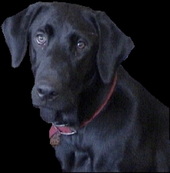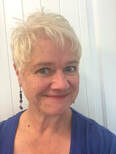 Annie Rose
Annie Rose There is no worse feeling in the world then when one’s child is in danger, being rejected, bullied, picked on, or faced with the biggest decision of their life so far, whether it be the parent’s perception or the child’s truth. Once the nest is empty, the agony of this watch seems worse for the parent who understands it is not their job to fix the problem. There is no more going to the teacher to talk about the grade. No more engaging a coach into rethinking their decisions regarding your child’s playtime or position. No more talking to the parents of friends to try to mediate an argument. Most of the problem-solving opportunities we are invited to participate in have mostly to do with a financial bail-out and although that is okay, it is hard to sit by and not be the one who can fix whatever ails the child in other areas of their life. It’s hard to let go. But we must.
Having emptied the nest almost 4 years ago, I have learned to be at peace with a steadier pace of life; a pace that doesn’t include a lot of hurried preparation for activity or immediate action to attend to life dramas in my children's lives.. But, every once in awhile, fear creeps in to what has been a calm and accepting heart.
In the beginning of the empty nest syndrome, the void of daily responsibilities for children starts with the panic, “what will I do now? – and -- "What will the kids do without me?” Gradually, the fear of having no control over our child’s life erodes with time and a realization that the child has been making life-decisions all along, without you, emerges. There is certain relief in not feeling responsible for everyday decisions of one’s children. After the grief of letting the kids go comes a time of freedom and self-discovery. It also gives one room to step back and look at one’s offspring as a “painting in progress.” I see the brushstrokes of diversity in my kids, see the erasures, take joy in the awesome colors of who they are and with an arms-length perspective, appreciate where their brush and palette have taken over the structure of the piece.
That is until a child is hurt. No amount of time, distance or circumstance can change the response of a parent’s heart when a child’s life is being challenged with adversity of any kind; it has happened to every one of my grown children in one way or the other.
The curse and beauty of age is the gathering of knowledge and wisdom based on past experience. If we are open to walking through challenges, both good and bad, we are saying yes to the opportunity for growth. All challenges in life are just that: the embracing of the moment, the circumstance, the pain and the joy, to learn and grow from that very experience. It is the opportunity for growth we sometimes turn away from. Not only do we turn away, but we run and hide from it. Running away comes from a place of fear. If we stand in the moment embracing each and every moment with love, there is no possible way to run in fear. If we cannot stand alone in love then we must beseech the spirit to do it for us until we feel that strength on our own. This means loving our enemies, doing what’s right despite all obstacles, rising above the argument and letting go of the pettiness of the moment, seeing beyond today and understanding that there is a “Best Possible Outcome” that we cannot see clearly in the moment. Not only that, but my dear friend who “gets this” reminds me that when we are seeking and praying for the Best Possible Outcome in any situation, we are to go one step further and understand – and CLAIM that the Best Possible Outcome is already on it’s way. There is a sense of relief and release when we accept this.
It makes parenting a bit easier, especially when parenting adults. They need to claim this for themselves and there is no way for them to learn this unless we model it.
One thing I know – when I am praying for peace of heart and quiet of mind, God presents himself in ways that I understand. Much of the time it is in the form of our Black Labrador Retriever, Annie. She knows my heart better than I do. She senses my grief, my heavy heart, my sadness, my joy, or my melancholy before I do. Her presence brings me to the present. If I sit in grief over lost opportunities, she may slowly rise and walk over to me, put her paw on my lap and kiss my cheek. If I am in tears, happy or sad, she comes and silently licks them from my face in such a tender way, I am immediately calmed and feel an unconditional love I don’t always feel with humans. It’s so ironic that Dog spelled backwards is God. So many of us fail to understand the depth of God’s love. Who else would dance around with joy at your return? Who else does not remember your anger from yesterday? Who else just let’s you cry and reaches out with a comforting touch? Who else sits patiently waiting for your return? Unconditional love is a tough action to emulate. It doesn’t come easy. Yet if one looks at the naturalness of the love that emanates from a dog, we are led to believe it is instinctual for them. So the question must be, if unconditional love is instinctual for dogs, then why not for humankind?
Instinct. Maybe it is, then, okay to accept that a mother’s first instinct is to protect and comfort a child. Then, let it be that the first instinct to comfort a child comes from the same unconditional love that Annie so freely gives. With that, I can only accept that the gift of Love is in the moment. Love is in this place. Where there is love – fear cannot exist. It is a struggle to get to the acceptance of love in the midst of chaos. One has to look for it, pray for it, beg for it and sometimes just accept it’s there when we can’t see it. It is then, I turn it over to God….”Love for me because I cannot love it right now!”
It is in the letting go of fear that love prevails. It is with the presence of love that the Best Possible Outcome reveals itself in good time. And it is in the wagging of a tail, the empathetic look in the eye, and a big slobbery kiss of a dog that love announces its presence – at least in this household.

 RSS Feed
RSS Feed

